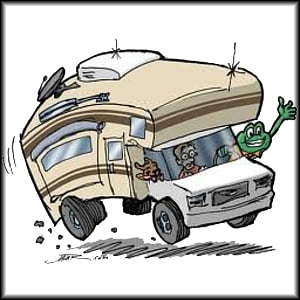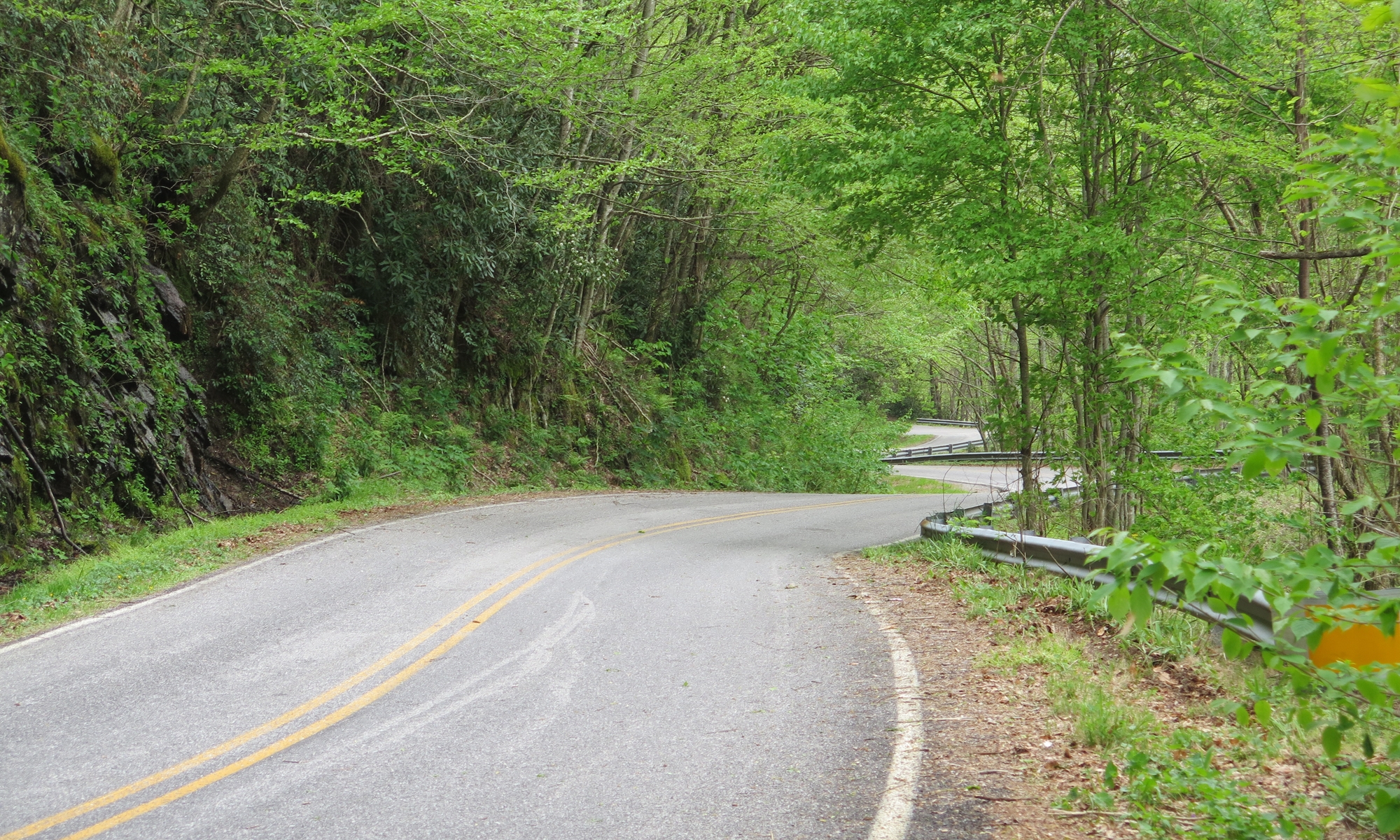 Now that we actually have an RV, it’s time for me to get my rear in gear and start thinking about trip planning. I’m only a couple days into that new mindset and have already realized that travel planning for RV life is not as easy as plain old ordinary trip planning. There are so many more things to take into consideration!
Now that we actually have an RV, it’s time for me to get my rear in gear and start thinking about trip planning. I’m only a couple days into that new mindset and have already realized that travel planning for RV life is not as easy as plain old ordinary trip planning. There are so many more things to take into consideration!
Maybe I should have thought about this stuff before buying an RV. Nah, what fun would that be?
Size Matters
When making reservations at campgrounds, you have to think about the size of the site, whether it has the appropriate hookups (electric, water, and sewer), is it a back-in or pull-through, is the site shaded or fully exposed in the middle of a big ole field, how close are the neighbors, etc. Some campgrounds, especially at state and national parks and forests, cannot accommodate big rigs like ours.
Location, Location, Location
Unlike regular travel planning, where you pick a place to visit then find an appropriate hotel, RV travel means finding a suitable campground and then finding the right site within that campground. It’s not a huge deal for short stays, but if we’re going to be staying in a place for a week or more, we need to be happy with our site.
A lot of campgrounds I’ve looked at post maps of their facility and even pictures of the individual sites. The maps tell you which sites have what hookups and the pictures show you how each site is laid out. Pics are not usually catalogued by number though, which means a lot of scrolling through a slew of site pics.
Rules and Regulations
I suspect most campgrounds have similar rules in terms of quiet time, number of people per site, whether or not you can park a car at your site, what to do with trash, whether or not visitors are allowed, etc. Some campgrounds restrict occupancy to older folks like us. Senior living at its best. I had no idea there were RV parks catering to seniors, but am happy to know that’s the case. I like kids well enough, but they can be pretty loud and, sometimes, obnoxious. Camping to me means peace, quiet, and solitude, not being surrounded by a horde of screaming children. Again, a night or two at a family campground would be tolerable, but long-term, I want peace.
The Big Picture
Planning for RV living also requires looking at where we want to be AND when we want to be there. It just would not be practical to, say, visit Arizona for a week, then Vermont, then Florida. That would just be too much driving. If we think ahead, we can make our way around the country methodically. So, depending on what time of year we sell our house, we will either head to the northeast or make our way south.
Mike and I have sort of been making a list of places we want to go/see. You know, when we think about adding a place to the list. Now, we need to get serious and finalize our list, or at least get it more filled-out, so I can start plotting our future.
The Best-laid Plans…
It’s never easy to plan perfectly for the future because one never knows what the future REALLY has in store. This year is the perfect example. Who would have ever thought that the world would change so much in a year?
But planning is still important. The more one knows, the easier switching gears will be when/if needed.
If there’s a state or national park campground we really want to visit at a particular time of year, advance planning is a necessity. Those kind of sites get booked well in advance.
It’s a Process
I still have a lot to learn, but, the good news is, I have gotten started. I’m excited to have a new challenge to figure out. It gives me something to focus on beyond just making it through every day. And the amount of effort I put into this exercise now will certainly help make the transition to RV life more enjoyable. And enjoyment is key. I’m pretty sure we won’t want to live like nomads forever, so we need to make the most of our wandering life.
I’m very much looking forward to this next chapter in our lives.

I guess planning seems necessary with a big rig like yours. We went in the opposite direction, when we got a small Volkswagen camper van. No planning, just joy riding and stop and change directions at any sign promising interesting things. And in case we don’t find a stop for the night… well, let’s say we have found creative options to spend the night.
Oh yes: Don’t overplan (places don’t go away, you can always come back), enjoy your trip and make memories that last. Cheers, SonjaM
Agreed!
Hi, Sonja! Yes, motoring around in a smaller vehicle would be easier. Imagine driving a rig like ours through some of the small towns in Europe! LOL. I can see the advantages of a small camper van for sure. I bet you have lots of fun camping stories to share, too.
And don’t plan to move quickly. Our first time out, we moved just about every day. A long stay was around 4 days. This gets old really fast. Now, one to three weeks seems about right.
For the last 7 months or so, we have mostly been using Thousand Trails. Pay once and stay at any of the parks for up to two or three weeks depending on the location. I think since the beginning of the year we stayed in them 200 days. That averages out to pretty cheap.
Another one we like is Harvest Hosts. Wineries, farms, museums, etc. Where you stay in the parking lots for free. It is dry camping but with your rig, you can probably dry camp for a week or more (a guess on my part). Another no-brainer one is Passport America where off season you save 50% on sites.
One big one you want to sign up for is TSD Logistics. It is a program for buying diesel fuel at selected truck stops for significant savings. So far, our largest saving was $1.10/gallon. When you are buying 80 gallons at a time, it’s significant.
If you are interested in any of these, let me know since we have affiliate links for Harvest Hosts and Passport America. For TSD Logistics, I think you just put my name down as a referral.
For actual trip planning, I hear a lot of people raving about RV Trip Wizard. Which incorporates a lot of features from a variety of other apps and websites.
Any more info, please feel free to ask.
Hi, Richard! I do remember reading where you have affiliate links, but couldn’t find them. I have been planning to ask you for that info. I read about all of those in your blog, and they sound like great ideas to me. There are so many campgrounds to choose from, and such a range of prices. National and state parks are very appealing, but the reservations are hard to come by. I haven’t heard about RV Trip Wizard, I will have to look into that!
I’ll email them to you. Thank you!
Thanks, Richard. I may not sign up right away. It doesn’t seem to make sense now, but will when we are ready to camp more often.
Richard has some great suggestions. We have an affiliate link too for Harvest Host, if you want to share the wealth. 😀
We don’t use any particular app, but start with a Google search of the target area for RV parks, or RV resorts. If a campground looks dodgy, and there are many, I check rvparkreviews. Or google reviews.
Another suggestion on finding campsites within a park is to use Google maps satellite view. Especially when planning (way) ahead for state parks and scenic area private campgrounds. We use it to make sure we have the best view, don’t have a giant, untrimmed, tree to negotiate around, etc.
Timelines vary on how far ahead you can book, for example, Florida state parks allow booking 11 months ahead of your arrival date. For our FL music fest, we had a reminder in our calendar for the day to book 11 months out. Our CG here is 6 months out. We never camp where you can’t reserve a spot, but that’s mostly because we are on assignment with a guaranteed spot 90% of the time. We do enjoy Harvest Hosts, but that is only allowed for 1 night at a time, with prior notice, and when we’re traveling from place to place. We rarely use Walmart or any other free parking because so many other RVers abuse those privileges.
You will figure out what works best for you, as you start planning. You know you can call, email or text anytime with questions! Happy planning!